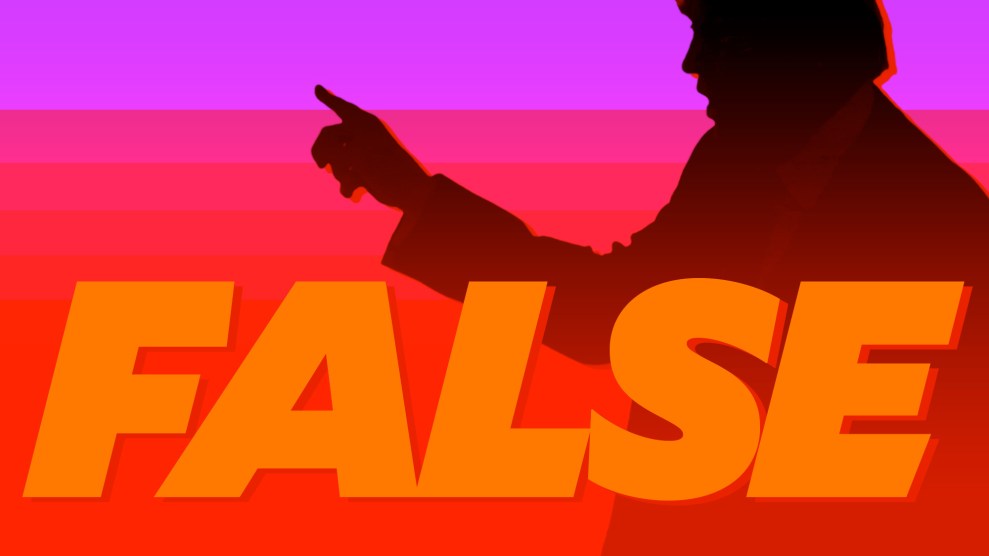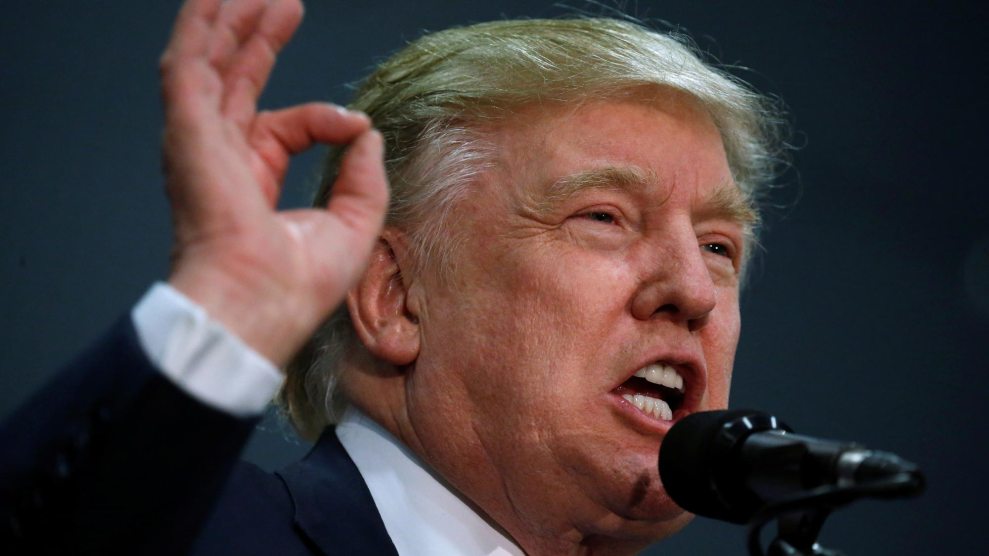
Mother Jones illustration; Shutterstock
This post was originally published as part of “The Trump Files“—a collection of telling episodes, strange but true stories, and curious scenes from the life of our current president—on October 27, 2016.
During his decades in the real estate world, Donald Trump famously shortchanged many small businesses on the money he owed them. The list includes companies that worked on Trump’s properties or supplied him with chandeliers, pianos, marble, and other luxury touches. But Trump also tried to underpay the very same lawyers who helped him save money, and some ended up suing their former client.
As our own Hannah Levintova reported in March, the Atlantic City law firm of Levine Staller saved one of Trump’s companies tens of millions of dollars in taxes—and then sued the company, Trump Entertainment, after the business tried to pay Levine Staller $1.25 million less than the firm was owed.
In 2012, Levine Staller won a settlement that returned $35 million in overpaid taxes and cut $15 million from the company’s future liabilities, leading to a total savings of $50 million for the corporation. Trump agreed to pay $7.25 million to the law firm in legal fees, but then only paid Levine Staller $6 million before trying to claim the rest as unsecured debt in ongoing bankruptcy proceedings. In response, Levine Staller sued its former client, Trump Entertainment, and in 2014, a judge rejected Trump Entertainment’s request to be absolved of this debt and told the company to pay up.
It wasn’t an isolated case. Trump underpaid at least four law firms or lawyers who worked for him, according to various news outlets that looked into Trump’s history of cheating his contractors. One of them, Morrison Cohen LLP of New York City, had represented Trump in a lawsuit against a construction contractor that Trump claimed had overcharged him for work on a golf course. According to USA Today, Trump sued Morrison Cohen for using the case to help promote its work, and the firm countersued for almost $500,000 in unpaid bills. The case was settled in 2009.
It wasn’t just big amounts Trump tried to get out of paying, either. Bill Scherer, a lawyer in Fort Lauderdale, Florida, had to sue Trump in 1994 to collect $5,000 in unpaid legal bills from a case Scherer won for the billionaire. The lawyer told Reuters last year that he had offered Trump a low rate to “curry favor” with the mogul, but still had to sue. “He’s a deadbeat,” Scherer told South Florida’s Sun-Sentinel newspaper. Trump told Reuters that he couldn’t remember Scherer or the case at all.














